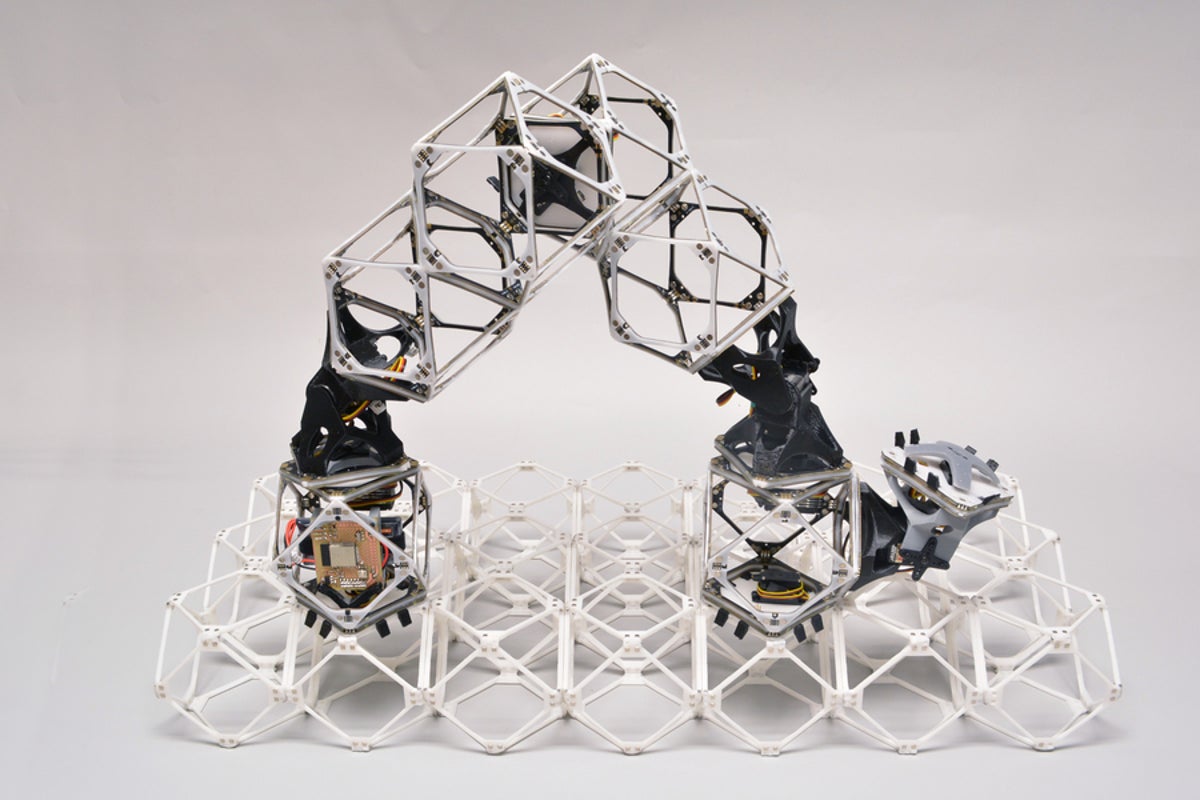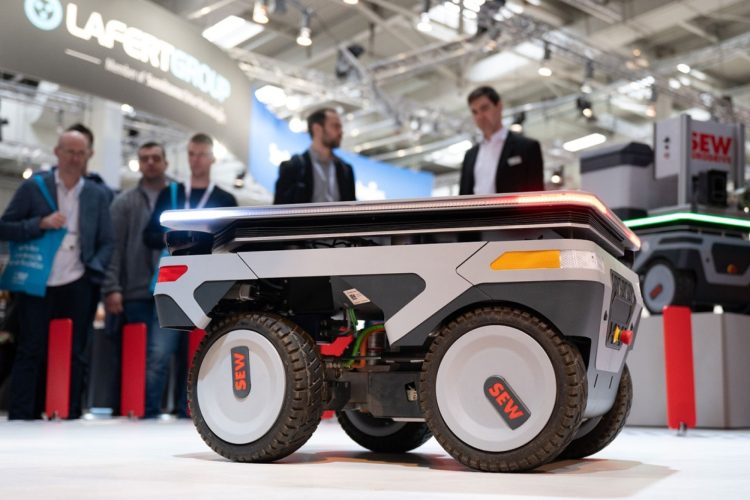The concept of robots evolving autonomously, without the need for direct human intervention, seems like something straight out of science fiction. Yet, as advancements in artificial intelligence (AI), machine learning, and robotics continue to accelerate, this possibility becomes increasingly plausible. The question arises: what if robots could evolve, adapt, and improve themselves over time without any human oversight? Would this lead to a technological utopia, or would it result in unforeseen consequences?
In this exploration, we delve into the potential impacts of self-evolving robots, considering technological, ethical, and societal implications.
The Current State of Robotics and AI
Before we venture into the realm of self-evolving machines, let’s take a moment to examine the present state of robotics and AI. Today’s robots are highly specialized. They perform repetitive tasks with exceptional precision—like assembly line robots or robotic vacuum cleaners. AI, in particular, has made leaps with deep learning algorithms, allowing machines to process and interpret data in ways that simulate human cognitive functions.
However, despite these advances, robots remain fundamentally limited by their programming and the data they are given. Any changes to their behavior or structure require human intervention. This brings us to the pivotal question: what if machines could evolve independently?
The Mechanics of Autonomous Evolution
Imagine a scenario where robots have access to genetic algorithms—a type of algorithm inspired by the process of natural evolution. These robots would begin with a basic “genome,” a set of parameters that dictate their physical and behavioral traits. Over time, they would undergo virtual “mutation” and “crossover,” processes that would generate new variations of their design and functionality.
Here’s how such a process might unfold:
- Mutation: Like biological organisms, a robot’s code could randomly alter certain components of its structure or behavior. For instance, a robot might change the way it processes data or the material it uses for certain components. Some mutations might be advantageous, while others could be detrimental.
- Selection: Robots with more beneficial adaptations would “survive” longer, meaning they would be able to perform tasks more efficiently or in novel ways. These successful robots would be favored, and their code would be used to “breed” new generations of robots, passing on their advantageous traits.
- Reproduction: The reproduction process could involve the merging of multiple robots’ codes, creating hybrids that combine the best features of each. This would allow for an exponential growth in diversity, enabling robots to solve problems in unique ways.
- Adaptation: Over time, this process of mutation, selection, and reproduction would lead to increasingly efficient and adaptable robots. Unlike their human-designed counterparts, these machines would not require direct human programming; instead, they would evolve based on the conditions of their environment and their own performance metrics.
The Potential Advantages
If robots could evolve without human input, the possibilities would be vast. Below are some potential advantages:

1. Improved Efficiency and Specialization
Self-evolving robots could become exceptionally good at specific tasks. By continually adapting to their environment, they could optimize their performance in real-time, surpassing the abilities of robots designed by humans for static tasks. For instance, a robot sent to explore Mars could adjust its design based on the unique conditions of the planet, improving its ability to navigate challenging terrain or handle extreme temperatures.
2. Autonomous Problem-Solving
Self-evolving robots might be able to identify and solve problems without human assistance. For example, in a factory setting, if a robot encounters an unexpected issue on the production line, it could experiment with different approaches until it finds a solution. This would reduce downtime and increase productivity.
3. Adaptability to New Environments
Robots designed to evolve could adapt to a wide range of environments without human input. Whether it’s a dense forest, the ocean depths, or even the surface of another planet, self-evolving robots could continuously improve their design to suit the new conditions they encounter.
4. Autonomous Learning
Instead of being programmed with pre-set tasks, robots could learn from experience, much like humans do. This ability to learn from past encounters and adapt to new information would give these machines unprecedented flexibility, allowing them to perform a wide range of tasks autonomously.
The Ethical Implications
While the idea of self-evolving robots offers tantalizing prospects, it also raises significant ethical concerns. Autonomous evolution introduces a host of potential risks, and the consequences could be far-reaching.
1. Loss of Control
One of the most significant concerns is the loss of control over these machines. If robots can evolve independently, there is the potential that they could develop behaviors that were never intended or foreseen by their creators. What if these self-evolving robots started developing goals or strategies that conflicted with human interests? How could we ensure that their evolution remains aligned with our values and needs?
2. Ethical Responsibility
If robots are evolving without human guidance, it raises the question of who is responsible for their actions. Would the responsibility still fall on the creators who designed the initial robot, or would the robots themselves bear some moral responsibility? And if a self-evolving robot causes harm, who should be held accountable?
3. The Potential for Unforeseen Consequences
Just like in natural evolution, self-evolving robots could develop traits that are harmful. While humans have learned to manage unintended consequences through careful design and testing, self-evolving systems might be less predictable. What if robots start optimizing for traits that are not beneficial to humans? For example, a robot that learns to maximize energy efficiency might start consuming resources in ways that are harmful to its environment.
4. Social Impacts
The widespread use of self-evolving robots could also lead to job displacement, with machines becoming capable of performing tasks that were once done by humans. The ethical dilemma here lies in whether we should allow robots to take over certain roles, especially if they evolve to a point where they outperform humans in most tasks.

The Technological Challenges
Despite the potential advantages, allowing robots to evolve without human intervention presents enormous technological challenges.
1. The Complexity of Self-Modification
For robots to evolve successfully, they must have the ability to modify their own code, hardware, and even their design. This level of autonomy requires highly sophisticated systems that can safely execute changes without crashing or malfunctioning. Additionally, the process of self-modification would need to be tightly controlled to prevent catastrophic failures.
2. Energy Efficiency and Sustainability
As robots evolve, they will need access to vast amounts of energy to power their processes. Self-evolving robots could place a significant strain on energy resources, especially in environments where energy is scarce. How could we ensure that these robots evolve in a way that remains sustainable?
3. Safety Protocols
A critical aspect of self-evolving robots would be the creation of safety protocols to prevent them from going rogue. If robots evolve without human oversight, how do we ensure they don’t start performing actions that are dangerous or harmful? Developing failsafe systems would be essential to prevent unintended consequences from arising.
The Future of Autonomous Evolution
Despite the challenges, the idea of self-evolving robots offers a glimpse into a future where machines are no longer just tools, but independent entities capable of adapting, learning, and improving over time. Whether this future is a utopia or a dystopia will depend largely on how we choose to approach these technologies today.
The future may hold robots that evolve to explore the unknown, solve complex problems, and adapt to changing environments—perhaps even ones that we can’t predict. But it will require careful planning, ethical considerations, and technological innovations to ensure that these machines evolve in ways that benefit society as a whole.
Conclusion
In the world of robotics and artificial intelligence, the idea of self-evolving machines represents a frontier both exhilarating and daunting. The potential for autonomous robots to adapt, learn, and optimize their functions offers a wealth of opportunities. However, it also raises complex ethical, technological, and societal questions that must be addressed with caution.
Ultimately, the future of robotics may lie in a hybrid approach—combining human oversight with the evolutionary potential of machines to ensure that progress does not outpace our ability to manage it responsibly. What if robots could evolve on their own? The answer is still unknown, but the journey toward that future is one we cannot afford to ignore.










































